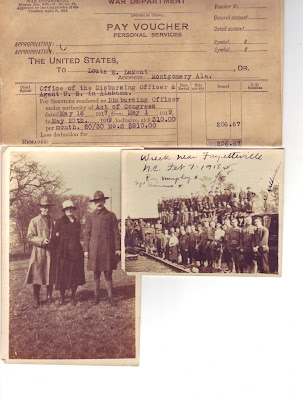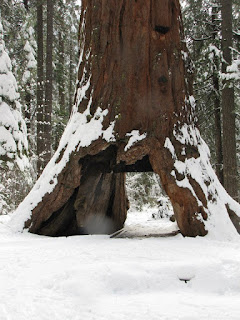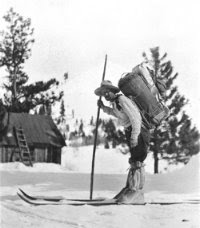
Murphys, Ca -- For some reason -- probably the lack of serious discussion during recent political debates -- I've been thinking about wars.
Technically, we are only engaged in one minor war at this moment, something of a record for us in the last 60 years or so. Afghanistan is so far away, and the impact so invisible, that it rarely makes the news any more -- only when a local soldier dies, or when a helicopter goes down with a dozen young men and women aboard.
My family history includes a long-time connection to the wars the United States has fought over the centuries. William Lamont fought in the French and Indian wars in the 1700s, and then his sons fought in the Revolutionary war against England, a country they grew to dislike when their ancestors had lived in Scotland and Ireland.
Then another Lamont served in the War of 1812 -- his widow got a $6/month pension. Fortunately for subsequent generations, the LaMont men managed through the next 150 years to serve in the military without ever having to shoot anyone, or be shot at.
That started with my maternal great-grandfather who was too old for the Civil War, and was a prison guard on weekends in his hometown of Montgomery, Alabama. He apparently never bragged or even talked about it, and it was not until the United Daughters of the Confederacy put a marker on his grave that anyone in the family even knew he served briefly in 1862.
My grandfather was too young for the Civil War, but managed to serve in the National Guard during riots in Birmingham in the early 1900s. He had a spiffy looking uniform but no scars.

My father enlisted to serve in World War One -- the war to end all wars -- in 1917. He did his Army basic training in Jacksonville, Florida, and then was aboard a troop train heading for the ship to take him to the trenches of Europe when the train, quite fortunately, was derailed in an accident that caused the troops aboard to miss the boat and the shooting war. He served till the end of the war as the chief executive of the draft board for the state. His veteran status earned him Veterans Administration Hospital care when he was broke, old and ill, a benefit the family appreciated then and now.

I had my turn as a "small unit combat leader" in the 1960s, and learned skills I am proud to say I never had to use. Most of the males my age served in some branch of the military unless they were physically unfit, or had an extremely rich political parent. It was what was expected of us, and what we did. The fact that my recent family experience was peaceful was just good luck.
I was born just before the United States became part of World War Two, the war to defeat the real Axis of Evil, and my dad was too old so we both missed that one "good war." Since that time the United States has been involved in 16 wars, or maybe 18 depending what you count. I count even minor confrontations that involved our people shooting at other, or others shooting at us.
Here is what has happened in my lifetime, which started with WW 2:
-- The Korean War, 1950-1953, sometimes called a police action;
-- The Lebanon Crisis of 1958 was the first war to be given a name "Operation Blue Bat;"
-- The Dominican intervention of 1965 (Operation Power Pack);
(The Cuban Missile Crisis does not qualify as a war because we only threatened each other, and did not actually send any U.S. troops anywhere beyond a South Florida tomato patch where a friend of mine had to jump out of a crashing plane that had been diverted from attacking Cuba.)
-- The Vietnam War actually lasted from our first advisers going in during 1955, until 1975. I can almost count this as my personal war, because I served in the Infantry as a reserve officer from 1962 until 1970 though no hard was ever done to or by me because I was kept at Fort Benning, Georgia, 90 miles from my hometown, for the entire time I served on active duty. No pictures are included because I weighed 128 pounds and had a crew cut ;
-- The Iran hostage crisis (Operation Eagle Claw) became a mini-war in 1980. Fortunately it was only a small unsuccessful disaster and few were killed;
-- The United States paratroopers, Marines and Rangers invaded (Operation Urgent Fury)and seized the Caribbean nation of Grenada in 1983;
-- Marines landed in Beirut in 1982, quite a few died in 1983, and then Ronald Reagan pulled us out two years later;
-- We launched air strikes against Libya in 1986 (Operation El Dorado Canyon) in response to a discotheque bombing in Berlin;
-- We invaded Panama in 1989 to kick out the dictator Manuel Noriega and ran that place until a new government was formed;
-- The U.S. and coalition forces (a new term in that decade) drove Iraqi forces out of Kuwait in 1990, Operation Desert Storm, but we called this the "Persian Gulf War," fighting that spilled over into Iraq and Saudi Arabia;
-- The US went into Somalia as peacekeepers (Operation Restore Hope)in 1992, but the population turned on our troops and killed 18 soldiers, and then we killed somewhere between 1,000 and 5,000 on the other side (or collateral damage), and then we got out;
-- Haiti was next (Operation Uphold Democracy) because the military there overthrew the president so we threw them out in 1995;
-- Yugoslavia found U.S. troops (Operation Joint Endeavor)in Bosnia and Herzegovina, and we bombed the country for four months during the Kosovo War in 1999;
-- By 2001 we had troops, some on horseback, in Afghanistan (Operation Enduring Freedom)to throw out the Taliban and destroy terrorist training camps;
-- By the next year we sent 2,000 troops to the Philippines (Operation Enduring Freedom-- Philippines)to help the local government fight al-Quaida;
-- We invaded Iraq again in 2003, and just called it the "Iraqi War,"kicked out Sadam Hussein, and occupied that country for the next nine years. We are still looking for those weapons of mass destruction;
-- When the Libyan uprising began in 2011 we shelled the coast from Navy ships and bombed military and political leader targets, and started using drones in combat. The U.S. maintains it was following the mandate to protect civilians.
As of today, the military troops have been pulled out of Iraq, and our interests there are protected by contractors.
Afghanistan, where we once thought we had won a decisive victory, is still pretty shaky but we have promised to leave soon.
So we have been involved in a shooting war in one place or another every three years or so since I was born.
We helped save Europe from Nazi destruction in World War Two, and saved South Korea from dictatorial rule from the north. And we helped rebuild those national, and others.
But the price for all those other wars, it seems to me, has been way to high.
We've built a country whose economy depends upon a giant military, fed by an even bigger military-industrial complex. Even when we are not fighting somewhere our elected officials make sure nothing interferes with the corporations selling weapons to almost any and every nation in the world. The Mid-East is just one example, but one that might some day lead us into another war.
No one says they are for war. People die, the losers are unhappy for generations and they cost a lot of money. But we seem to just fall into one after another, so maybe it is time to rethink this.
I think it is time we took a break, and tried some other approach. Maybe we need a 12-step program to break the bad habit of war.
One lesson I recall reading from such programs seems to apply here:
If you keep doing things the same way, you will get the same results.

